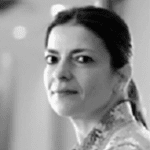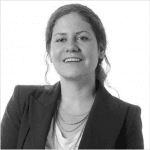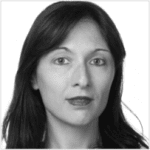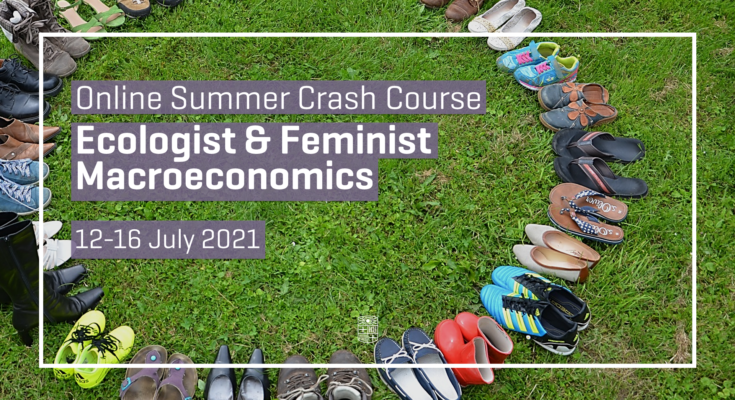How can we provide a good life for all within planetary boundaries? A recent article in Nature Sustainability (O’Neill, 2018) argues that “No country in the world currently meets the basic needs of its citizens at a globally sustainable level of resource use.” This summer workshop offers a crash course on both ecological and feminist macroeconomics. Moreover, it invites participants to reflect upon the convergence between the two. The intention is to contribute to macroeconomics able to face the challenges of the XXI Century. These are well reflected by the Sustainable Development Goals. Particular emphasis will be paid to ecological sustainability, gender equality, and their intersections.
If you are interested in pluralist economics and new economics, you can’t miss this course! Some of the best scholars from both ecological and feminist economics will introduce the topics and present their cutting-edge research. You will then have the chance to personally interact with them. Exchanges among participants will also be fostered, with the aim of starting collaboration for future research projects. Opportunities for PhD and postdoc fellowships will also be offered for those interested to pursue further research in the topics covered by this online summer crash course. The time is ripe for macroeconomics to refocus on what really matters: the health and wellbeing of our people and our planet.
Academic Coordinator: Dr Federico Demaria, Serra Húnter assistant professor in ecological economics and political ecology at the University of Barcelona Department of Economic History, Institutions and Policy and World Economy.
Dates: 12-16 July 2021
Total hours: 20 (All classes are online, and in English). Find all details and updates here.
DAY 0: ONLINE POST TOUR OF STUDENTS’ RESEARCH PROJECTS
Prior to the beginning of the course, all the students will be asked to record a short video of 3 minutes where they briefly introduce themselves and present their research project, and/or interests. These will be made available in advance to all participants and speakers.
Session 1: Ecological macroeconomics: Ecologising Macroeconomic Theory and Policy
Dr Simone D’Alessandro, Associate Professor of Economics. University of Pisa (Italy)
Session 2: Feminist macroeconomics: Engendering Macroeconomic Theory and Policy
Dr İpek İlkkaracan, Professor of Economics. Istanbul Technical University (Turkey)
DAY 2: HETERODOX ECONOMICS
Session 3: Post-Keynesian macroeconomics
Dr Louison Cahen-Fourot, Post-doctoral researcher. Vienna University of Economics and Business (Austria)
Session 4: From the End of Growth to Degrowth: Perspectives from feminist economics
Dr Bengi Akbulut, Assistant Professor of Geography, Planning and Environment. Concordia University (Canada)
DAY 3: MACROECONOMICS MODELLING
Session 5: Ecological macroeconomics modelling and simulations
Dr André Cieplinski, Post-doctoral researcher. University of Pisa (Italy)
Session 6: Feminist macroeconomics modelling and simulations
Dr Cem Oyvat, Senior Lecturer in Economics. University of Greenwich (UK)
DAY 4: FINANCE
Session 7: Embedding finance in the macroeconomics of climate change
Dr Irene Monasterolo, Assistant Professor of Climate Economics and Finance. Vienna University of Economics and Business (Austria)
Session 8: The future of money: From financial crisis to public resource
Dr Mary Mellor, Professor Emerita of Social Sciences. Northumbria University (UK)
DAY 5: ALLIANCE FOR THE FUTURE
Session 9: On the convergence between ecological and feminist economics
Dr Corinna Dengler, Postdoctoral Researcher. University of Kassel (Germany)
Session 10: Future research agenda: Presentations by student groups & debate
Work group
Please note: Program subject to change without notice. All times are CEST (Central European Summer Time)
ACADEMIC COORDINATOR

LECTURERS







Irene Monasterolo is Assistant Professor of Climate Economics and Finance at the Vienna University. She is also the principal investigator of the Greenfin project that investigates the fiscal, monetary and prudential policy complementarity to foster demand for climate aligned investments and the EU Green Deal. She works at the research-policy interface, supporting central banks and financial regulators to mainstream climate change considerations into financial risk assessment and climate stress testing, as well as in greening monetary and macroprudential policies. Recent focus is on exploring fiscal, monetary and macropru policy complementarity, and systemic risk implications of compound COVID-19 and climate risks. She has been working on sustainable finance technical assistance for several international financial institutions (World Bank, European Investment Bank, Inter-American Development Bank, Caribbean Development Bank) and the European Commission.

Mary Mellor is Emeritus Professor at Northumbria University, where she was founding Chair of the University’s Sustainable Cities Research Institute. She has published extensively on alternative economics integrating socialist, feminist, and green perspectives. She is a founding member of the newly formed World Economics Association and is on the editorial board of several journals. Her books include Feminism and Ecology, The Future of Money: From Financial Crisis to Public Resource, and Debt or Democracy? Public Money for Sustainability and Social Justice. Her most recent book is Money: myths, truths and alternatives (Policy Press 2019). She holds a PhD from Newcastle University.

FEES & REGISTRATION
Professional fee: €95
Student fee: €45
Reduced fee: €15*
*For participants that are unemployed, or from countries included in this LIST.
Registration is open until 11 June 2021. Places are limited







The link to registration doesn’t work (as well as the most part of the website)
https://www.ub.edu/school-economics/summer-crash-course
Hi there!
I just saw this very interesting summer school, but the registration link is broken. Wondering if registration is already closed, or is there a chance to get enrolled.
Many thanks!
Hello David,
have a look https://www.ub.edu/school-economics/summer-crash-course